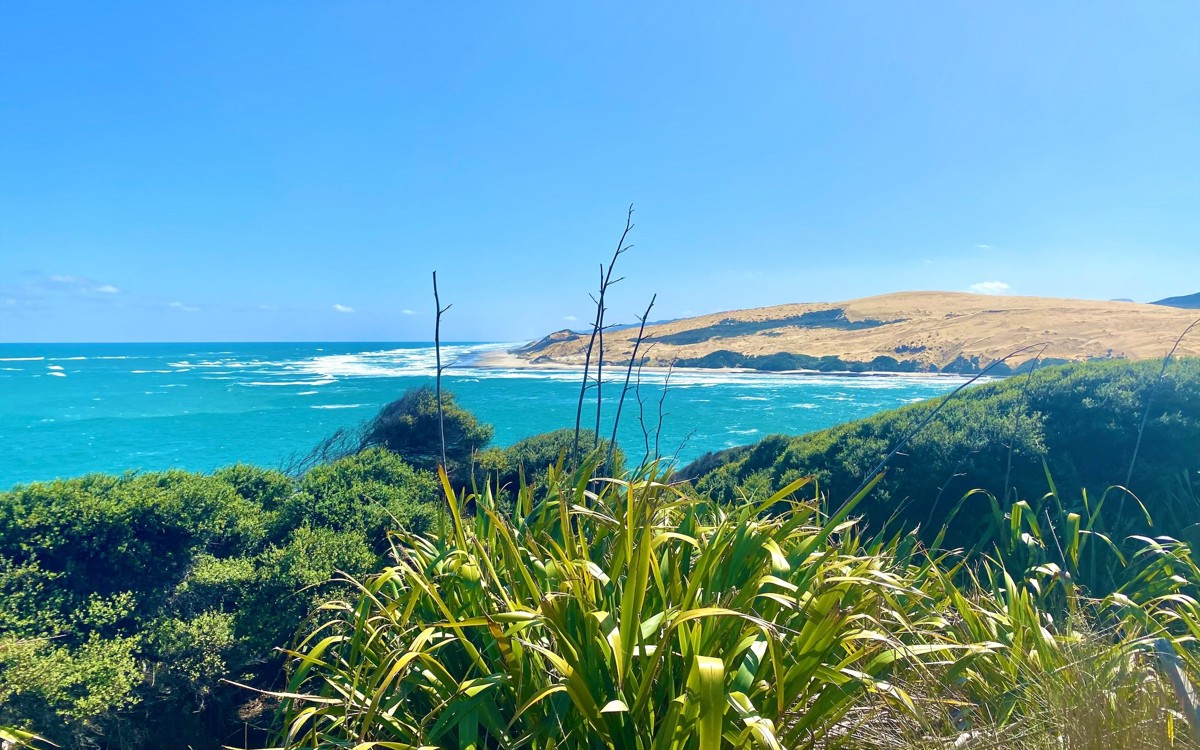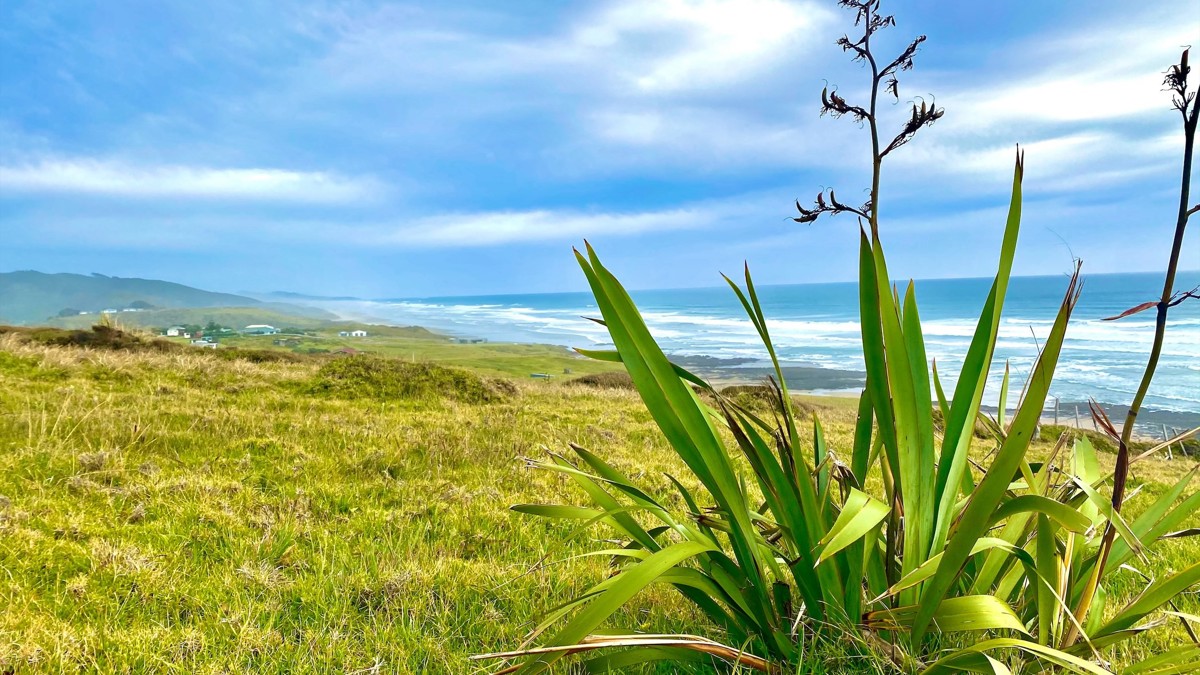Dr Sandeeka Mannakkara, The University of Auckland, New Zealand

I want to encourage all of us to think outside the box and put people and our environment first in considering how we adapt to climate change. Local solutions and indigenous knowledge need to be at the heart of it.’

Although New Zealand’s national climate change adaptation strategy stresses the importance of engaging with the Māori community on environmental issues, successful implementation of this at local levels is yet to be seen. The same can also be said of integrating indigenous knowledge into adaptation policies and practices.
Commonwealth Climate Resilience Challenge grantee Dr Sandeeka Mannakkara is a Lecturer in Climate Engineering at the University of Auckland, New Zealand. From discussions with her Māori colleagues, she gained a deeper understanding of the challenges their families and communities face in responding to climate change within conventional Euro-centric systems. This also increased her awareness of the capacity and ability of Māori to tackle these challenges using their own valuable Indigenous knowledge and worldview. Following these conversations, she saw the opportunities of bringing together Western and Indigenous knowledge systems for better climate solutions.
As Sandeeka describes: ‘Indigenous knowledge is a valuable and valid source of knowledge that encompasses an intricate understanding of nature and puts people and the environment first. This is a common theme amongst the indigenous knowledge systems of all indigenous peoples around the world.
‘With how far we have veered away from these values in modern culture, and where it has taken us by accelerating climate change as a result, going back to our roots and re-discovering indigenous knowledge and old values is the key to restoring the balance.
‘Reflecting on this it became evident that there was a remarkable gap in our engineering education and practice for understanding and considering indigenous knowledge.’
Identifying indigenous knowledge practises
To help address this gap, after securing a Commonwealth Climate Resilience Challenge grant from the ACU, Sandeeka launched a project to extend understanding of New Zealand indigenous worldviews (te ao Māori) and indigenous knowledge (mātauranga Māori) related to climate change and climate change adaptation, involving local communities, community leaders and indigenous knowledge experts.
As Sandeeka explains: ‘The project aims to extend ongoing research work on understanding indigenous knowledge of New Zealand Māori relevant to adapting to climate change. This knowledge will enable academia and practitioners to develop climate change adaptation solutions that are sustainable and more appropriate for our indigenous communities.
‘We also hope to enhance the ability of academia to value indigenous knowledge systems and pedagogy within our engineering teaching curricula so that we tailor to our indigenous student cohort as well as educate non-indigenous students on indigenous knowledge systems and practices relevant to Māori.’
The project also seeks to identify the unique challenges faced by New Zealand indigenous communities with regards to climate change and inform academics and practitioners. It is hoped that this will create better relationships between academia and local indigenous communities as well as support indigenous students into tertiary education and the engineering profession.
The research team, which comprises of staff and student researchers, have begun their research in discussion with indigenous leaders of an indigenous Māori tribe based in Northland, New Zealand. Tikanga and kaupapa Māori (traditional Māori customs, protocols and ethics) are closely adhered to, with the researchers engaging in sequential visits over time to build trust, establish relationships and find mutual goals to co-develop the project.
As Sandeeka explains: ‘The successful engagement and relationship we have built with the district and regional councils in Northland, New Zealand and their willingness to understand and uptake the project’s findings has been a very positive step in the right direction.’
‘[There is] ongoing successful engagement with the Northland-based iwi for this project and trust being built about our intentions, despite historic tensions and mistrust with Western-focused institutions. There has also been successful engagement with local councils and practitioners based in Northland who are fully supportive of the project and eager to uptake the project findings to improve their relationships with the Māori community and better integrate indigenous knowledge.
‘We have had two undergraduate engineering student groups working on this project, including one Māori student, who were able to gain exposure and understanding of the implications of indigenous knowledge and integrating it into engineering practice.
‘The students’ enthusiasm and fascination of the research has confirmed the appetite that our students have for better exposure to indigenous knowledge systems in our mainstream curriculum.’

A vision for the future
Sandeeka’s overarching vision is for indigenous worldviews and knowledge systems to be considered as valuable and valid as western worldviews and knowledge systems in tackling climate change in New Zealand and elsewhere. She also hopes to be part of building better relationships between Māori, local councils and academia to achieve common goals. Of crucial importance is that Māori have a leading voice in developing solutions, Māori worldviews are respected and commonplace, and that Māori students feel comfortable and at home at the University.
The key outputs of this research project will include project findings delivered in the form of reports, journal papers and conference presentations. The curriculum for a new course being introduced in 2022, ‘Climate Adaptation Design’, will highlight the value of considering indigenous knowledge systems for tackling climate change and feature local and international best-practices for integrating indigenous practices with western science-based approaches for adaptation.
Sandeeka hopes that her work will encourage similar research going forwards, but acknowledges that there is a long road ahead to truly achieve her vision:
‘The main challenges will be in building trust with indigenous communities, ensuring that their knowledge will be protected and used respectfully. There is a considerable difference in mainstream approaches which follow a Western worldview and the indigenous Māori worldview. It will be challenging for councils, practitioners and mainstream education to change and adapt entrenched practices to adopt or integrate a Māori worldview despite best intentions. However, making minute changes along the way by exposing indigenous worldviews into mainstream channels and making indigenous knowledge systems commonplace in digestible amounts will carry us forward.’
The University of Auckland’s strategic plan focuses on its commitment to Māori through engaging with Māori, adopting a Māori worldview, and providing an equitable experience. Currently, the faculty of Engineering has only 5% Māori students and very low numbers of Māori staff. Conducting research of this nature and integrating Māori knowledge systems into the mainstream is therefore considered a priority to attract more Māori staff and students and meet the commitments made in the strategic plan.
Sandeeka and her colleagues have already been in conversation with neighbouring countries in the Pacific that face a similar challenge and need for incorporating indigenous knowledge into climate change adaptation. Building on the success of this initiative, she will be starting a project with similar goals for the Cook Islands in 2022.
(Images: Northland region, New Zealand)
More information
- The Commonwealth Climate Change Resilience Challenge grants are available to staff at ACU member universities to fund collaborative climate action and environmental projects.
- With many Commonwealth countries on the frontline of climate change, the ACU’s Commonwealth Climate Resilience Network (CCRN) is working to build climate resilience within universities and their wider communities.
